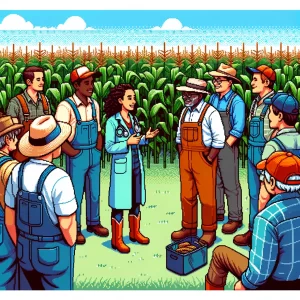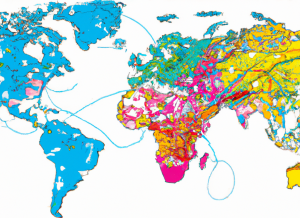
The Impact of Community Health Workers
In the expansive landscape of U.S. healthcare, a critical but often overlooked player has been quietly shaping better outcomes and bridging the gap between under-resourced communities and the health services they need. These are the Community Health Workers (CHWs), the frontline public health workers deeply embedded within the communities they serve. Today, let’s unravel the vital role of CHWs and how their grassroots efforts are transforming healthcare.
Who Are Community Health Workers?
Community Health Workers have been a part of the American healthcare system for over 70 years, yet many are unaware of the significant roles they play. CHWs are trusted members of the communities they serve, often sharing life experiences and cultural ties with their clients. This unique position allows them to serve effectively as liaisons between health services and the community, facilitating better access to healthcare and improving the quality and cultural competence of service delivery.
The Value CHWs Bring to Healthcare
Recent studies have underscored the effectiveness of CHWs in several critical areas:
- Managing Chronic Conditions: CHWs have been pivotal in helping manage diseases like diabetes and hypertension, significantly improving patient outcomes.
- Increasing Access to Preventive Care: Through education and outreach, CHWs help individuals access preventive measures, reducing the burden of disease.
- Reducing Healthcare Costs: By addressing health issues at community and individual levels and preventing complications, CHWs help to reduce overall healthcare expenditures.
- Advancing Health Equity: CHWs address social determinants of health by advocating for systemic changes that benefit underprivileged communities.
Integration of CHWs in Healthcare
Despite their proven effectiveness, the integration of CHWs into the healthcare system has been gradual. Historical shifts, like the inclusion of CHWs in the Affordable Care Act, highlight a growing recognition of their importance. They are now more commonly found in roles that range from direct service delivery to health promotion and disease prevention.
Challenges and Future Directions
While CHWs have gained some recognition, consistent support and integration into the healthcare system remain challenges. Funding is often precarious (we’ve seen this in many, many projects), linked to short-term grants rather than long-term investments. The future direction for CHWs involves securing sustainable funding and further integrating them into health systems, recognizing them not just as ancillary staff but as integral components of healthcare delivery.
The Impact of CHWs During the COVID-19 Pandemic
The COVID-19 pandemic highlighted the indispensable role of CHWs. They were on the front lines, providing culturally relevant information, supporting vaccination efforts, and ensuring that marginalized communities had access to necessary resources. This crisis underscored the urgency of integrating CHWs fully into our public health infrastructure.
Why Should We Care?
Investing in CHWs is not just a matter of improving healthcare delivery—it’s about reshaping it to be more equitable and just. CHWs offer a way to address the systemic inequities that have long plagued the U.S. healthcare system. They bring a deep understanding of the social and cultural contexts of the communities they serve, making them invaluable in crafting targeted, effective health interventions.
Conclusion
Community Health Workers represent a critical link between marginalized communities and healthcare systems, advocating for and implementing change that supports health equity and improves outcomes. Their integration into healthcare is not just beneficial but essential for a more equitable and effective system.
Engage and Learn More
Are you interested in learning more about how CHWs are transforming healthcare in your community? Or perhaps you are considering becoming a CHW yourself? Join the discussion below and share your thoughts or questions!
Empower Your Public Health Journey – Subscribe and Transform!
Unlock the transformative power of knowledge with ‘This Week in Public Health.’ Each issue is a treasure trove of insights into crucial research, community health achievements, and advocacy strategies. Don’t just read about change – be the agent of it. Subscribe for free and start making an impact with each edition!
About the Author
Jon Scaccia, with a Ph.D. in clinical-community psychology and a research fellowship at the US Department of Health and Human Services with expertise in public health systems and quality programs. He specializes in implementing innovative, data-informed strategies to enhance community health and development. Jon helped develop the R=MC² readiness model, which aids organizations in effectively navigating change.



